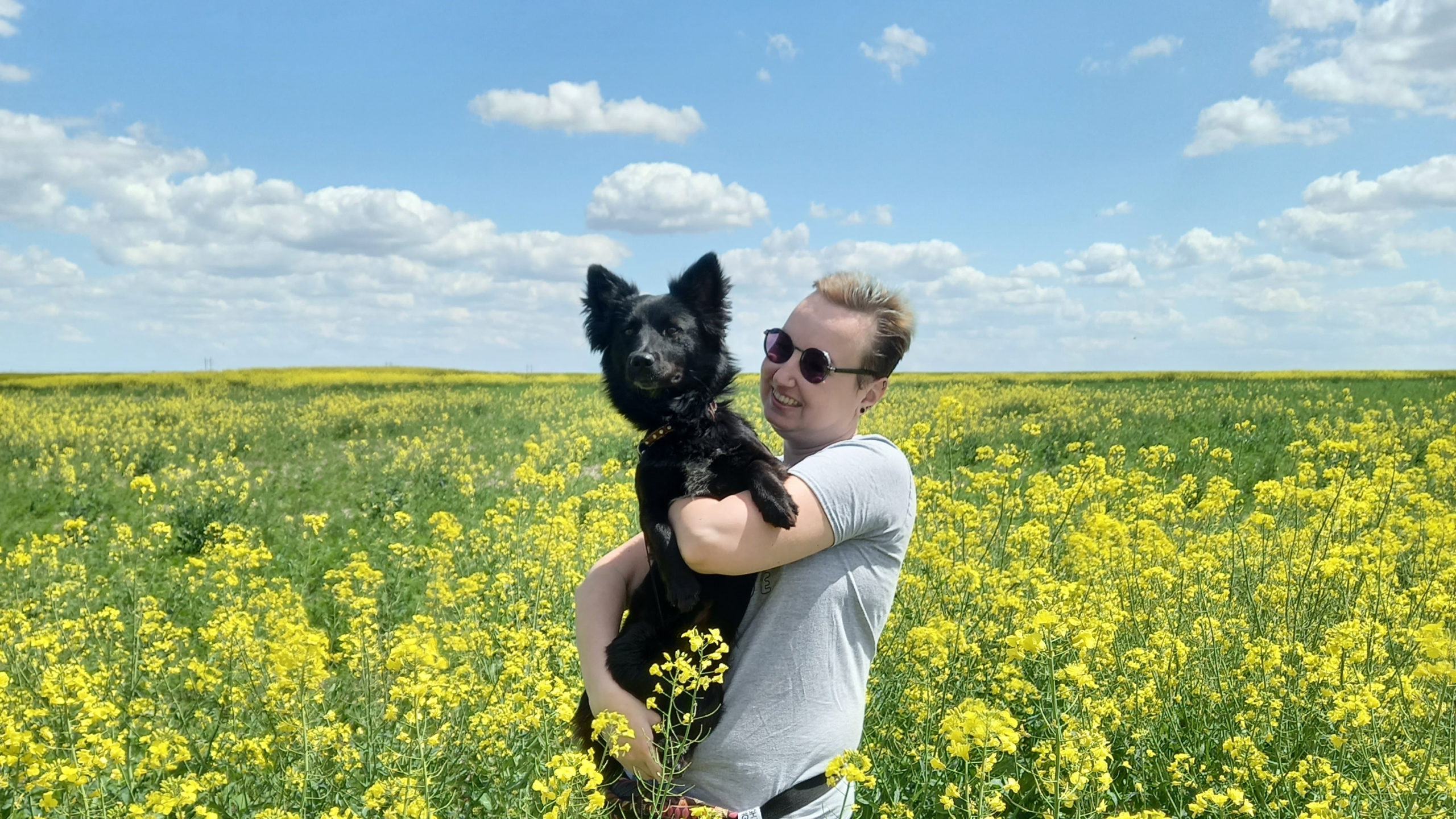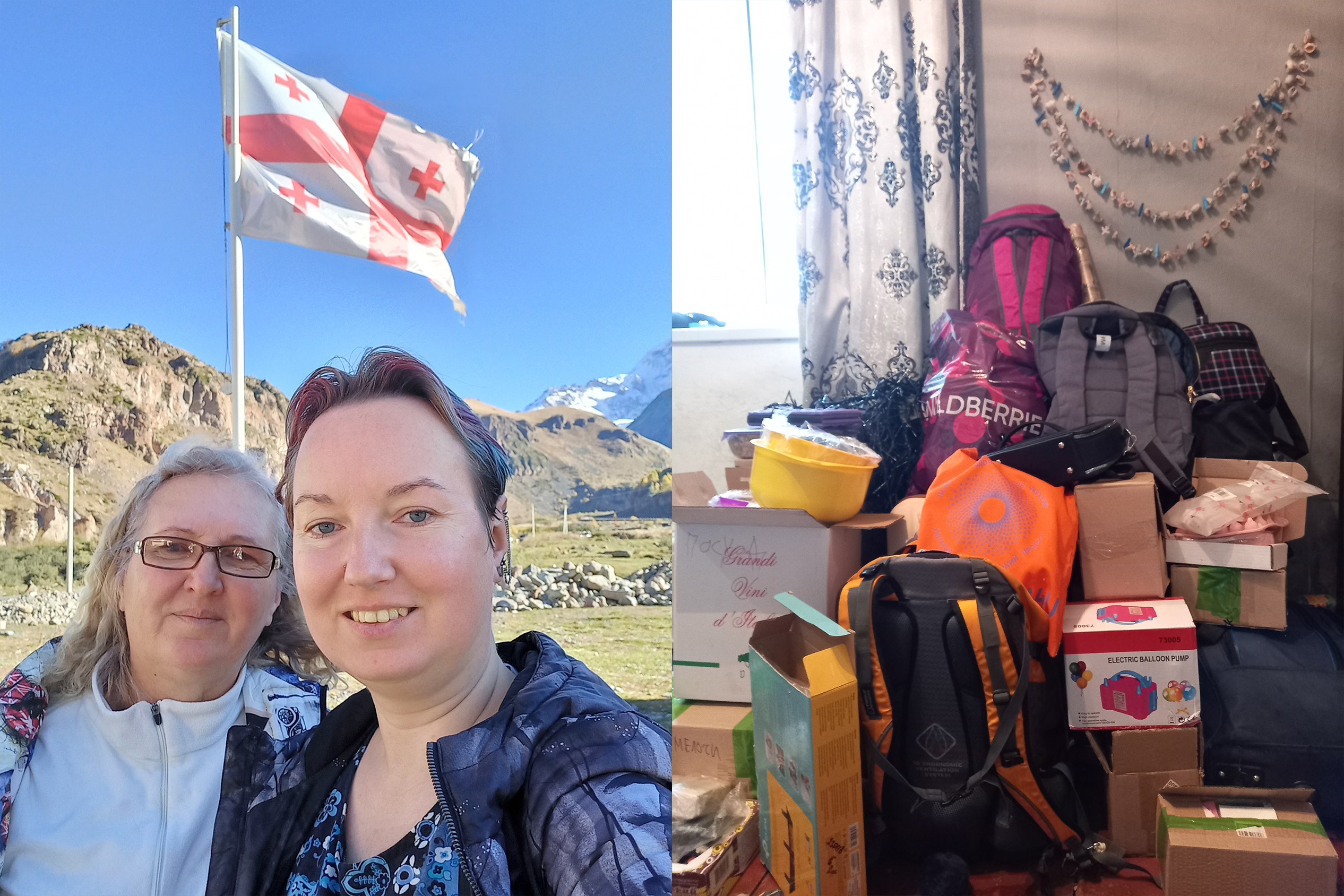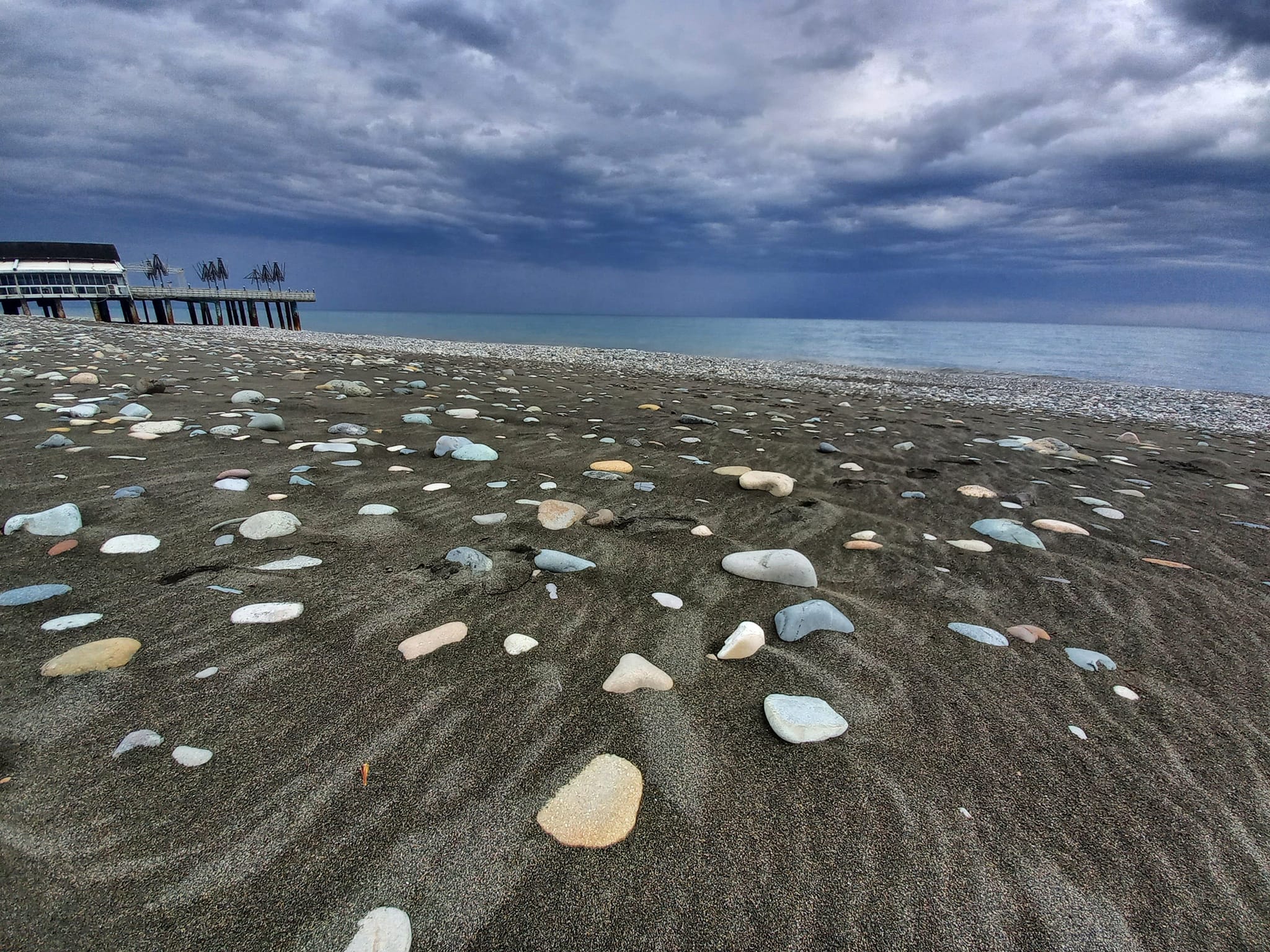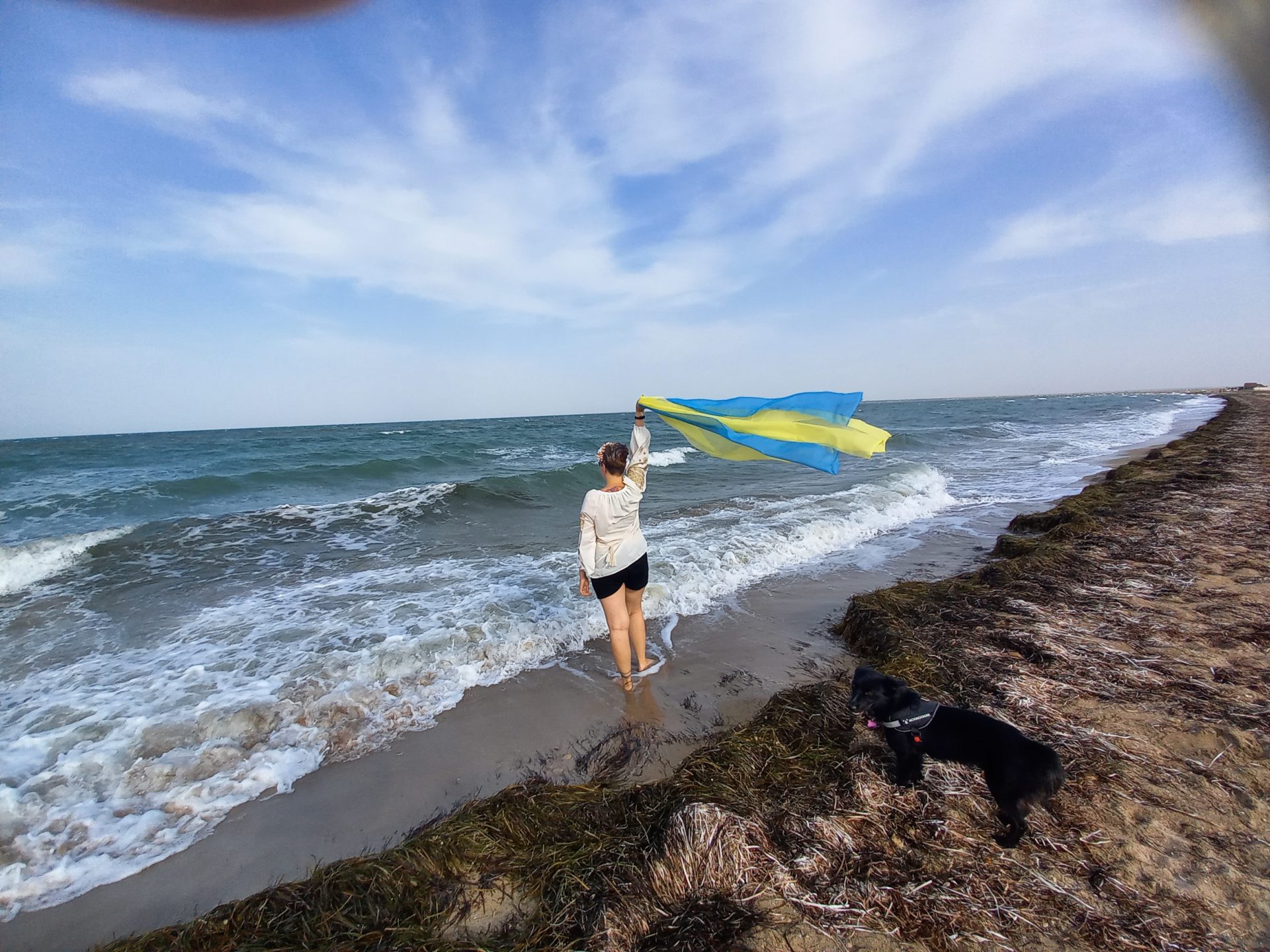Following the launch of the full-scale Russian invasion of Ukraine in February 2022, Russia has intensified repressions against Ukrainian citizens in Crimea and the number of political prisoners has risen to 180+ (as of February 2023). The Russian occupation of the Kherson region cut off Crimeans from the mainland, and for some, brought the war to their backyards.
Olena Vinsent is a Ukrainian LGBTQI activist and human rights defender. Like many other civil society activists, she left Crimea in 2014 following the Russian annexation of the peninsula but had to return home in 2019 due to health-related issues and financial difficulties. She then stayed with her mother in their home in Krasnoperekopsk, 22 km from the demarcation line with the Ukrainian mainland and often travelled there for her NGO activities and necessary medical treatment.
However, in 2022, the occupation of the Kherson region during the early days of Russia’s full-scale invasion of Ukraine made it more dangerous for her family to stay.
“Back then, Kherson felt more home and dear to me than Krasnoperekopsk. But following Kherson’s occupation, they [Russian military] started to dig trenches behind our backyard garden, it became obviously dangerous to stay, more dangerous than before… If our home was not that close to Kherson, we would have probably not left.”
I don’t have illusions that our house will be in one piece when we return.

In October 2022, Olena, her mother, and their four pets left their home for Batumi, Georgia. Their emergency evacuation was supported by Human Rights House Crimea (HRHC), which Olena reveals was unexpected and timely, as they had to evacuate quickly without necessary preparation and funds.
In 2022, HRHC was able to provide urgent support to human rights defenders like Olena thanks to their protection programme, supported by the Human Rights House Foundation and funded by the Norwegian Ministry of Foreign Affairs. Since January 2023, HRHC supports defenders under the framework of Emergency Support Ukraine (ESU) – a regional project that provides opportunities for emergency support for Ukrainian civil society and independent media in the wake of the full-scale Russian invasion. ESU is funded by the European Union and implemented by an ERIM-led coalition of partners.
The support of Olena and defenders like her has become increasingly crucial after the full-scale Russian invasion, says Andrii Zubariev, Director of HRHC: “Arbitrary arrests, harassment, and searches of homes of Crimea residents are no longer applicable only to human rights defenders, activists, leaders, and journalists. This has become the reality for every ordinary person in Crimea and in the newly occupied territories of Ukraine. The risk is constant and severe.”
Many people are detained in particular as a result of the law on “discrediting the Russian military” which Zubariev describes as vague, widely applicable, and often launched based on the testimony of an “anonymous witness”. Citing reporting from the Crimean Human Rights Group, Zubariev elaborates: “The reasons for the apprehensions and fines are, for instance, posts on social networks such as “No war”, “I support peace”, as well as singing Ukrainian songs. The victims are often detained on spurious charges, their whereabouts are hidden from their families, legal aid is not provided, and many of them are detained incommunicado.”
In the course of six months between December 2022 and May 2023, HRHC supported over 70% of applications for support. 28 people were helped including four children.
International cooperation on the protection of human rights defenders

“We travelled by car because other means of transport were unrealistic because of our pets. We decided on Georgia because it felt easier in terms of accommodation and because I had problems with my joints – now it’s the first year that nothing hurts because of the climate – but in Georgia, we had no friends, no contacts.”
In total, their trip lasted 11 days, as they were forced to take an unexpected break in the Georgian mountains.
“Right after we crossed the [Russia-Georgia] border, our car broke down in the mountains near Stepantsminda. We had to stay there waiting for it to be fixed”. Olena sent the broken car part to Tbilisi by bus, where Shelter City Tbilisi organised its repair and sent it back to Olena by bus again so that they could reach Batumi.
Upon arrival in Batumi, another member of the Network of Human Rights Houses stepped in to provide support – Human Rights House Tbilisi, also under the framework of ESU. They followed up on HRH Crimea’s support and assisted on the ground. Olena notes that her family was planning to evacuate to Batumi even before finding out about the possibility of support, but without it, she would have faced relocating to a place that lacked necessary medical services.
Andrii Zubariev believes that international coordination and solidarity are key when it comes to providing protection to human rights defenders. “It allows us to support cases that would be difficult to support on our own. By coordinating, we are able to offer diverse and flexible assistance based on the needs of each specific situation.”
Olena struggled at first to find accommodation that accepted pets, but shared that she managed to find one “we were lucky and our first host even gave a carpet for the dog as a present and decreased the rent”.
Getting used to feeling safe again
When I lived in Crimea, I used to log out of all accounts before going to take a shower – at any moment, they [Crimean de facto authorities] could come and search my house.
The first day in Batumi coincided with the first day in Olena’s new role as an engagement manager at Wikimedia Ukraine. But due to anxiety from living under occupation, it took her around one month to start using the work email app on the phone.
“At first, I didn’t even put my work email on my phone because it felt dangerous. Only after a month in Georgia, I realised that I can set it up and use…It requires a lot of energy – all these security arrangements, and when there is no need for it anymore, and you can just relax – relaxing, it turns out, is a very incomprehensible and forgotten feeling.”
As a newly certified holistic security trainer for HRDs and journalists, Olena jokingly says: “Since I was not arrested during all those years in Crimea – I probably am valuable as a safety trainer”.
Olena notes that she found Georgia to be a peaceful, safe and quiet country in general, with a very low crime rate. However, during the recent protests against the so-called Russian-style “Foreign agent law”, the feeling of safety somewhat diminished. “I am Ukrainian, of course, I joined the protest, but before that, I made sure not to have anything in my backpack that police could question – the habit from the past,” says Olena.
Looking forward

Olena plans to stay in Batumi for another year and applied for additional support from HRH Tbilisi via the ESU project. She shared: “While I live and work here, I’m definitely more productive than under occupation. I’m safe and have an Internet connection 24/7”.
Besides her work and volunteering, Olena is undertaking her Msc in Post-conflict territories Management and is currently busy with her thesis on “Integration of the youth of the de-occupied territories into Ukrainian society as a priority of the recovery strategy of Ukraine”.
Olena Vinsent is the co-founder of the “Promin Zmin” NGO, she is a member of the “Fight for rights” NGO, a Ukraine-wide human rights network of people with disabilities. She is the founder of the “Between us” initiative group for women with disabilities. Since the relocation, she has worked as an engagement manager at Wikimedia Ukraine and has recently become an ambassadors’ coordinator at Mental health for Ukraine.
Human Rights House Crimea’s Urgent Support Programme provides individual support to human rights defenders, activists, and their family members in the context of the on-going full-scale Russian invasion of Ukraine. The Programme is implemented under the framework of Emergency Support Ukraine.
Emergency Support Ukraine (ESU) is a regional project that provides opportunities for emergency support for Ukrainian civil society and independent media in the wake of the full-scale Russian invasion. ESU is funded by the European Union and implemented by ERIM-led coalition of partners including Human Rights House Foundation and Human Rights House Tbilisi.
Top photo: Olena Vinsent with Ukrainian flag at Bakalʹsʹka Kosa, Crimea, August 2022. This scenic beach has been utterly transformed by the occupying Russian authorities and is now full of trenches.






